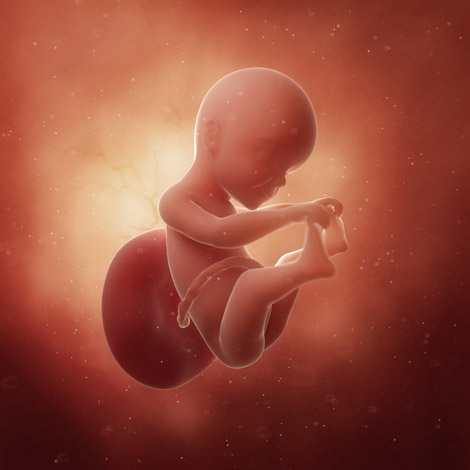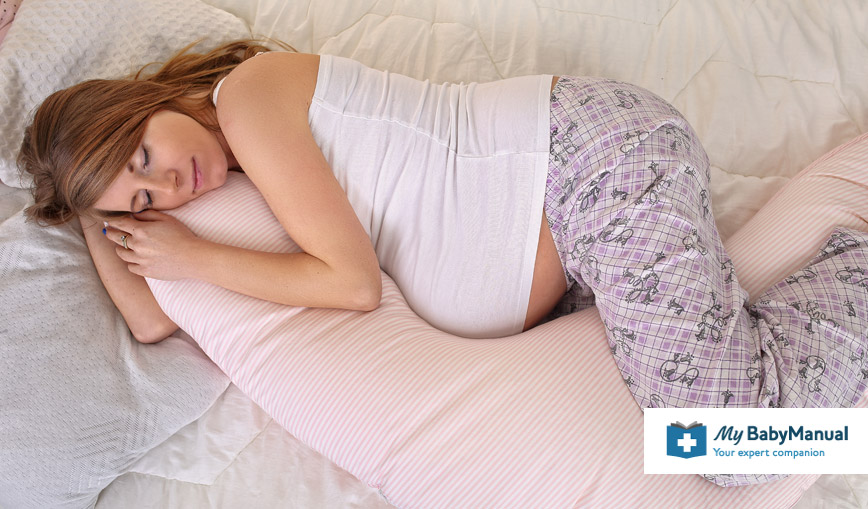Your baby this week
GRAMS IN WEIGHT
Her reflexes are developing and her hearing improving.
Your baby is looking more plump and less wrinkly.
Your baby is beginning to sense light.
How big is your baby?
She’s progressing well, now weighing about 660g (1.5lb/23.3oz) and her length from head to heel is 34.6cm (13 ½ inches), making her roughly the size of a cantaloupe melon.

How big is your baby?
She’s progressing well, now weighing about 660g (1.5lb/23.3oz) and her length from head to heel is 34.6cm (13 ½ inches), making her roughly the size of a cantaloupe melon.

What does your baby look like?
In week 25 of pregnancy, she looks more plump and less wrinkly as her skin is being ironed out by the production of fat cells beneath it. The hair on her scalp is growing and a closer inspection would reveal that it now has texture and colour.
Changes in your body this week
As you approach your third trimester, you may find that the tiredness of early pregnancy is making a comeback. You know the drill by now though – rest, rest and then rest some more. Another exciting development this week is that by now you may be able to actually see your baby’s kicks on the surface of your bump; this is particularly nice for your partner, who, up until now, hasn’t been able to share the excitement of feeling your unborn baby’s movements.
How your baby is developing
The cells in her eyes (rods and cones) are developing which allows her to begin sensing light. Shining a torch at your bump may make her wriggle in response. Her reflexes are developing and her hearing improving; if there’s a sudden loud noise nearby, she may kick out, or ‘jump’ in response. She will grow used to the everyday noises, and hearing these after birth may well soothe her. White noises, such as the washing machine, tumble dryer or vacuum, are especially good for this.

How your baby is developing
The cells in her eyes (rods and cones) are developing which allows her to begin sensing light. Shining a torch at your bump may make her wriggle in response. Her reflexes are developing and her hearing improving; if there’s a sudden loud noise nearby, she may kick out, or ‘jump’ in response. She will grow used to the everyday noises, and hearing these after birth may well soothe her. White noises, such as the washing machine, tumble dryer or vacuum, are especially good for this.

Health concerns
If you’re planning to do some last-minute, pre-baby travel, then you need to make sure that you are prepared properly in advance, as travelling whilst pregnant holds a whole new set of challenges to the easy travelling you may have experienced before. The most important thing is to make sure that you carry your maternity notes with you at all times. The likelihood is that everything will be fine, but just on the off chance that it isn’t, having your notes with you will mean that you’ll get the most appropriate care.
Apart from this essential item, the other things recommended for comfortable travel are items to keep you happy and healthy, such as always having enough clean, drinkable water with you ; staying hydrated during pregnancy is key and if you’re going somewhere hot or travelling in a car on a summer’s day, the likelihood is that you will need to drink little and often.
Likewise with snacks. Having a few essential food items with you in case of delays, or possible inedible airline food, is vital. Wholemeal biscuits, dried fruit and cereal bars are all pretty good pregnancy snacks. Plus, if you’re taking a vitamin or supplement, iron perhaps, then don’t forget to pack enough for the entire trip as you may not be able to get exactly what you need when you get to your destination.
Are there any symptoms you should be looking out for?
Extreme premature labour is rare – but does happen. Signs of preterm labour include dull, low backache, period-like cramps, vaginal fluid or blood loss and most tellingly, regular contractions every ten minutes or so. If you’re experiencing one or more of any of these then it’s time to call your maternity ward to be on the safe side. It’s better to go in and be monitored for a while than take any risks with your pregnancy.
Safety first
As your bump grows ever bigger, it’s time to start making some adjustments in your life. For example, it’s now important that you try not to lie flat on your back to sleep. This is because the weight of your expanding uterus, and your baby, can press down on the inferior vena cava (large blood vessel) which disturbs the flow of blood back to the heart and this can make you feel sick, dizzy and generally unwell. Not to mention ensuring good blood flow around your body is super important for your baby as well.
Instead, lying on your side with a pillow between your knees is often the most comfortable way to get a good night’s sleep. If you are predisposed to roll onto your back, try propping some cushions or pillows either side of you to prevent this, or put a pillow between your knees. If you do wake up on your back, just be aware that you may feel dizzy and light headed, try turning onto your side for a few moments before getting out of bed and support yourself as you put weight on your legs, just in case.
From now on you should also avoid contact sports and high impact exercise; stop immediately if you experience any pain, dizziness or shortness of breath. You should also ensure that you are eating enough calories to support you and your baby as you head towards the third trimester.

Important issues this week
You’re getting ever nearer to meeting your baby for the first time. Now is a good time to start thinking about issues that may come up after birth so that you’re fully prepared. Do you plan to breast or bottle feed? If you have a little boy, will you have him circumcised? Also, having a basic understanding of potential birth problems, such as tongue tie and cleft palates means that you will be well prepared if anything unexpected crops up. But, try not to worry as the statistics prove such things are pretty rare.
Keeping fit, staying healthy
One of the less enjoyable things about pregnancy is the toll it takes on your pelvic floor muscles. This small, muscular band of tissues is slung like a hammock inside your pelvis, and carrying your baby puts a strain on them. Sometimes this leads to stress incontinence; basically you wee a little bit whenever you laugh, cough or jump. Pelvic floor exercises are designed to combat this and doing them regularly throughout your last trimester will make sure that your pelvic floor is left in the best possible shape.
Looking forward; planning ahead
One of the most important pieces of equipment that you will buy for your baby is the car seat. It’s essential that you take the time to research exactly what type of car seat is suitable for you. Always buy from a reputable retailer and make sure it conforms to the latest safety standards.
It’s got to fit properly in your vehicle and you have to be confident that you can handle it easily and correctly. Retailers sometimes provide fitting services when you buy a baby car seat so you can be sure that you’re getting it exactly right straight away.



